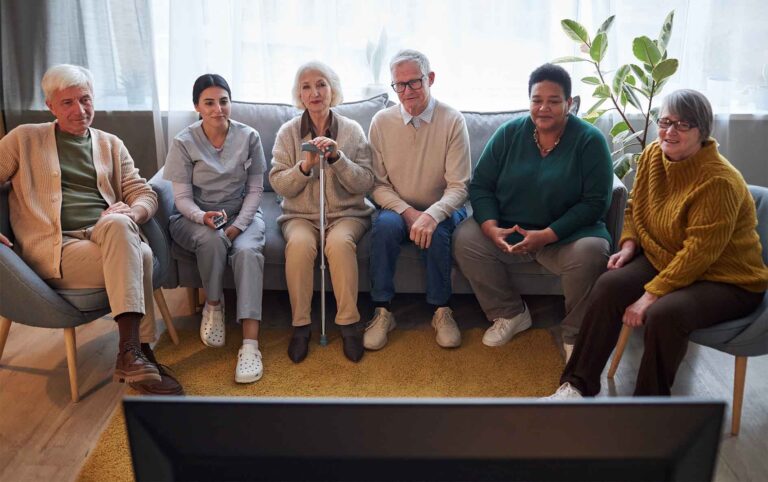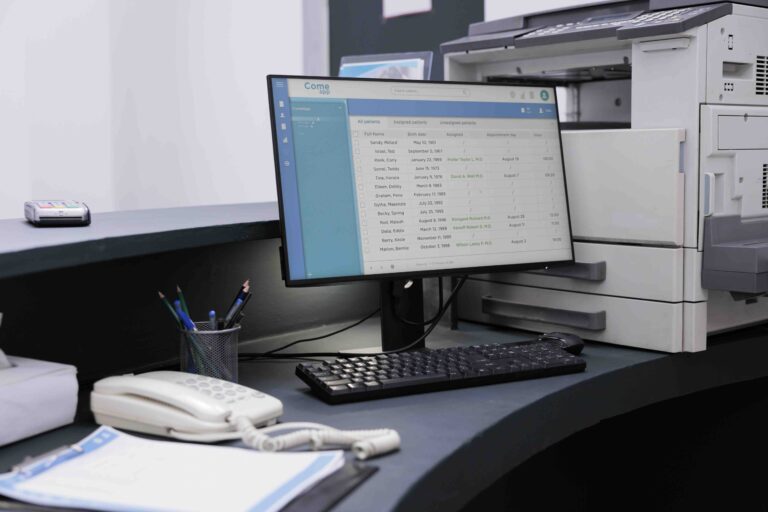In the hospital environment, the implementation of pay to watch TV systems is contentious – expensive, exploitative even.
Charging a bed-bound patient to watch TV? such a simple pleasure that surely shouldn’t be commercialised?
To make it clear, Airwave Healthcare has never sold or implemented a pay-to-watch TV system and will never do so. Instead, we offer a range of solutions that provide patients or residents with a raft of entertainment features – all distinctly, refreshingly free of charge.
So, with all this in mind, surely any pay-to-watch technology is a big no-no in the healthcare environment?
Time Moves On
We may look back at times previous (80s music is definitely better than the rubbish on the radio these days, right?) with fond, nostalgic eyes, but, of course, time moves on and technology improves.
Today’s tech savvy patient – juggling smart devices and log-ins to more subscription services than you can shake a stick at – certainly benefits from the raft of content that a progressive thinking property can offer via a TV entertainment system. Google Chromecast, in particular, has revolutionised TV technology, essentially allowing a patient to stream content (such as Netflix, BBC iPlayer, YouTube etc) from a portable device to a TV.
So, surely a “pay-as-you-watch” movie model, also known as “video-on-demand,” isn’t a credible option when there’s an iPhone 12, bustling at the seams with lovely content, at the patient’s disposal?
Video-on-demand is dead, right?
Well, no actually.
Far from it.
And we would question any industry professional that suggests otherwise.
Complementary Technology
Far from being dead, in decline or on its way out, video-on-demand should form an integral part of today’s patient entertainment system – not competing with terrestrial TV, casting services or smart apps, but complementing them.
Whilst property owners often appreciate the benefit VOD offers – such as early-release movies (typically arriving months before streaming subscription services), an additional revenue stream and a value-added element, often so important in premium properties – we regularly hear the same few objections to the uptake of VOD.
We call them ‘myths.’
So it’s time to talk about our sister company’s cloud-based video-on-demand app, Airtime, and dispel the myths once and for all!
Video-On-Demand – Dispelling the Myths
MYTH: VOD systems are expensive and tie a property down to a fixed-length contract.
Nope. Not true. It isn’t 1999 any more. There is no operational cost associated with Airtime. Aside from a negligible activation charge, Airtime is a complimentary service.
What’s the catch? There isn’t one. Airtime receives a percentage of each movie rental fee – and make its money via volume of movies bought…
MYTH: VOD is dead.
Far from it! Airtime was implemented into 9,000 new rooms in 2020 and is growing exponentially.
2020’s first lockdown saw 6,000 new rooms implemented within a three month period, and in the month after the UK ‘opened up,’ Airtime enjoyed a 47% year on year increase on movie rentals in hotels (despite significantly lower occupancy rates).
MYTH: I don’t need VOD, I’ve got Chromecast.
Great! Chromecast is a fantastic technology and a critical component within a modern patient entertainment system. However, how are you catering for the significant number of patients that a) aren’t tech savvy b) don’t have access to streaming services and c) don’t have a smart device?
Would you only offer beds to 70% of patients?! No? Then why only offer 70% of patients additional entertainment options?
Video-on-demand should form part of a patient entertainment system that caters for ALL patients, not SOME of them…
MYTH: VOD systems require hardware in the bedroom (and comms room), that’s extra expense and an extra headache.
Non! Nein! Não! * Airtime is 100% cloud-based. No hardware is required. Best of all? it can be remotely implemented on compatible SMART hospitality TVs (all modern Philips, Samsung and LG hospitality models should be compatible).
By the way, we’re not just talking the UK here. Airtime is a seasoned traveller and is, as we speak, churning out movies in Thailand, Australia, Hong Kong and 19 other countries.
We even managed to implement an Airtime service into a hotel in Belize, Central America, within four hours (yes, four hours) of a telephone enquiry (not all heroes wear capes). Click here to find out more about that super-human effort.
* Impressed with our language skills? Did you know that Airtime is a multi-language service, offering movie and programming content in 12 languages?!
What’s to lose?
A negligible cost implication, seamless, remote implementation, revenue generation and the provision of a value-added service to your patients. What’s to lose?!
How about this – if you can give us a credible reason why you wouldn’t want to add Airtime to your patient entertainment system – we’ll waive the implementation cost and give you an Airtime service completely free of charge. Can’t say fairer than that?



